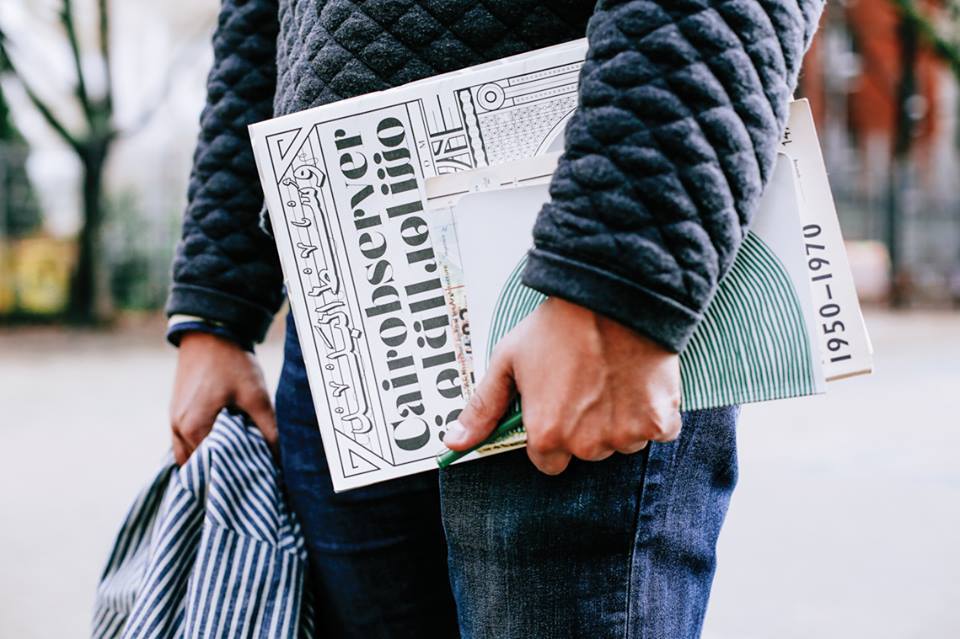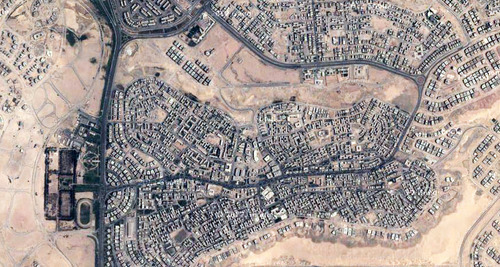Resident Perspective: El Obour
Resident Perspective is a series of standardized interviews with Cairo residents to get their views on the city and their neighborhoods.
Where in Cairo do you live?
Madinet El Obour: Undeveloped, marginalized desert community, mostly non-gated areas. Has potential, but as every other Egyptian undertaking, is not thought out or planned to thrive.
List the most positive and the most negative aspects of living there.
Negative: Basically in the middle of nowhere which causes transportation and safety repercussions, increased crime rate, unpaved/undeveloped, architecturally disturbing, to say the least..also a number of plumbing issues that have at some point flooded entire districts which just further bolsters the idea that most desert cities (and most cities/establishments in Egypt, really) are cheaply constructed/finished. Positive: Variation in housing classes; something I rather admire since all these desert cities were originally meant to house workers as a priority and most other desert cities have, along the miserable way preferred to house upper middle class and upper class citizens, greedily ignoring the painfully obvious housing crisis at hand. There’s also a certain degree of public gardens with benches strewn about which spread throughout all districts with their class variations. (even though gardens are not exactly the wisest undertaking at this point specifically in a place like El Obour..it would have been much more appropriate/economic to have tried to create a public space more fit to the surrounding climate..but let’s not get picky)
How do you move around Cairo (modes of transport) and what would you like to see different regarding the future of transport in the city?
Private cars mainly..being a female doesn’t exactly encourage walking/cycling. I now think VERY well before stepping out of the house and risking the traffic; some errands are just not worth it. Of course I’d like to very idealistically say, bikes would be great alternatives but let’s face it we don’t have enough streets to start thinking about bike lanes and pedestrian walkways. The one improvement I’d truly like to see would be a certain inner transportation within desert cities (which of course entails having somewhere to go to in a desert city and currently the services around could only be described as pathetic so let’s work on that first)
How does your district fit within Cairo? What would you like to see changed in that relationship between your neighborhood and the city?
Isolated would be the appropriate term. Our beloved dictator-infested past with its genius centralization tactics have already doomed our present/future situation of ever expanding while maintaining a connection between all districts..so, unless each new city or district is provided with its own services and legal offices then I don’t think this is going anywhere. I would like to see El Obour more connected to, I don’t know, lands of living creatures but I’m not exactly holding my breath.
What are your top complaints about Cairo and what would you suggest to solve those problems?
Transportation (and inadvertently traffic) Architectural identity The imbalance between supply and demand of public spaces. Transportation and traffic: more streets (that are actually executed correctly with estimated drainage levels for once in our lives not a rip off), a variation in street widths to maintain fluidity of traffic, different methods of transportation so it’s not all private car dependence (10 cars 10 people, 1 bus 10 people phenomenon), clearly borderline pavements for walking and preferably some dignified traffic lights or bridges for people to cross streets and, I don’t know, not die on their way to their miserable underpaid future-less jobs. Architectural identity: Buildings that somehow reflect our modern day needs and culture (not Pharaonic pylons and lotus columns; I think we all agree the pharaohs are dead) more along the line of vernacular climate appropriate architecture..defined/studied spaces for particular uses, housing units that are repetitive yet functional and not over adorned with unneeded architectural eclecticism; Roman orders and other irrelevant additions.) Supply and demand of public spaces: Aside from the fact that all “free” public spaces in Egypt are either non existent or ironically fenced; we have no where to go..the government has tried to prevent congregation so adeptly that all the places left are expensive/ mono-functional..restaurants, hotels, and like what? 6 malls? not to mention the randomly located private clubs.
What do you like the most about Cairo and what are your favorite places in the city.
I like the informality that makes Cairo; the places and spaces that people create; whether temporary occasion-based tables on the streets or kiosks or very personal statement bumper stickers on buses. I also like how it can never fall prey to the urban anonymity that other cities might be subjected to; you can always orient yourself.. Favorite places would be Islamic Cairo..the old city itself..more along the line of Bab Zwaylah (Darb al Ahmar) and the mosques there rather than the very manicured Al Moezz Street.. Diwan bookstore, ironically. My house (regardless of the surround).
Do you relate to the historic heritage of your district or of Cairo in general? Do you think you have a good sense of history of the city? Would you say you are have “civic pride” or are proud to live in Cairo?
Yes and yes (I am very much enthralled by the historic progress of the city from a single nucleus to what it is now..it is part of my studies after all) Civic pride..tough one..I am proud of the original sentiment of Cairo but that romantic pride does not hold much with the obvious deterioration and the constant reminder of how the city has failed on so many levels..I like Cairo but I do not like what it has become or how I’m participating to this current state of decay.
Do you understand how the city is governed/managed? Do you think your community/district would be better or worst if residents from the community/district were involved in local government (محليات)?
No, actually not in the least. Of course participatory management would be way more efficient specifically since inhabitants of an area know best..nevertheless, it’s a long and difficult process which I do not see happening in the near future.
In the context of Cairo, what comes to mind when you think of these keywords?
Green Space/Parks: Non-existent. Would help in mental orientation if correctly placed/used and planned.
Gated communities: Flawed..non-durable.
Museums: Not integrated well in any given urban fabric..neglected.
Informal areas: very promising, should be learnt from and improved/maintained. Ironically, the only culture/climate/area-relevant architecture and urban planning examples in Cairo.
Downtown: Congested, legal center, interesting point in historical architectural and urban planning.
If you could move to another district in Cairo where would you move to?
At this point, I am entirely certain that, most, if not all, districts in Cairo are in some way flawed and it’s a governmental/ political regime dilemma so I doubt moving anywhere in Cairo would differ in anything. I’d like to add that, we could be a corrupt country all we want but that doesn’t mean we can’t have adequate streets, housing and spaces..Urban planning affects productivity, crime rate and so much more..we could have it so much better with just the same costs.
*If you would like to tell us about where you live and share your views on Cairo, fill the survey by clicking here.
4 notes
awanderinglostsoul liked this
cairobserver posted this


